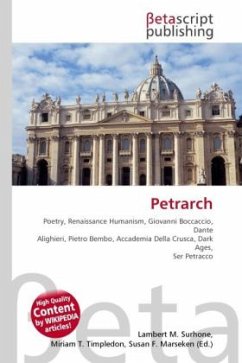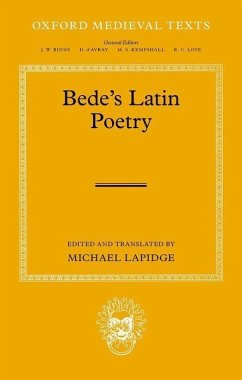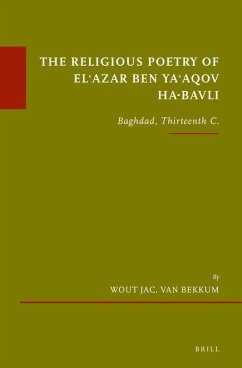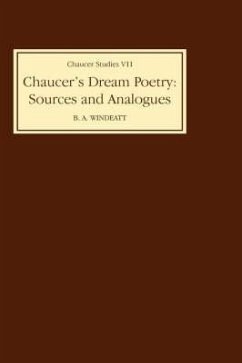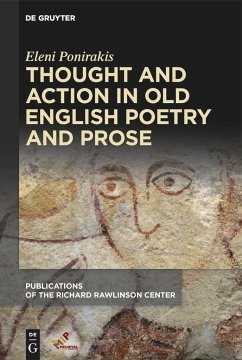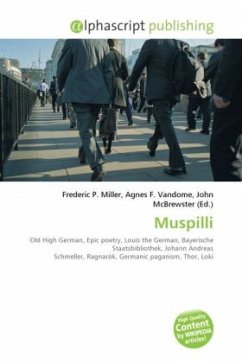
Muspilli
Versandkostenfrei!
Versandfertig in 6-10 Tagen
26,99 €
inkl. MwSt.

PAYBACK Punkte
13 °P sammeln!
Muspilli is one of but two surviving pieces of Old High German epic poetry (the other being Hildebrandslied), dating to around 870. One large fragment of the text has survived in the margins and empty pages of a codex marked as the possession of Louis the German and now in the Bayerische Staatsbibliothek (cim. 14098). The beginning and end of the poem have not survived. It was re-discovered in 1817 and first published in 1832 by Johann Andreas Schmeller, who also titled it Muspilli, after a central word in the text. The poem has been theorized as a Christianized version of the pagan Ragnarök,...
Muspilli is one of but two surviving pieces of Old High German epic poetry (the other being Hildebrandslied), dating to around 870. One large fragment of the text has survived in the margins and empty pages of a codex marked as the possession of Louis the German and now in the Bayerische Staatsbibliothek (cim. 14098). The beginning and end of the poem have not survived. It was re-discovered in 1817 and first published in 1832 by Johann Andreas Schmeller, who also titled it Muspilli, after a central word in the text. The poem has been theorized as a Christianized version of the pagan Ragnarök, with figures represented in 13th century sources swapped with Christian figures; Surtr replaced by the Antichrist whom Elias - replacing Thor - fights, Loki by the old fiend. In the Norse Ragnarök, Muspelheim and Muspel play a large role, and both versions involve a wolf. Grau proposes a connection of all of the material in the poem except for two verses to the 4th century theologian Ephraimthe Syrian.





